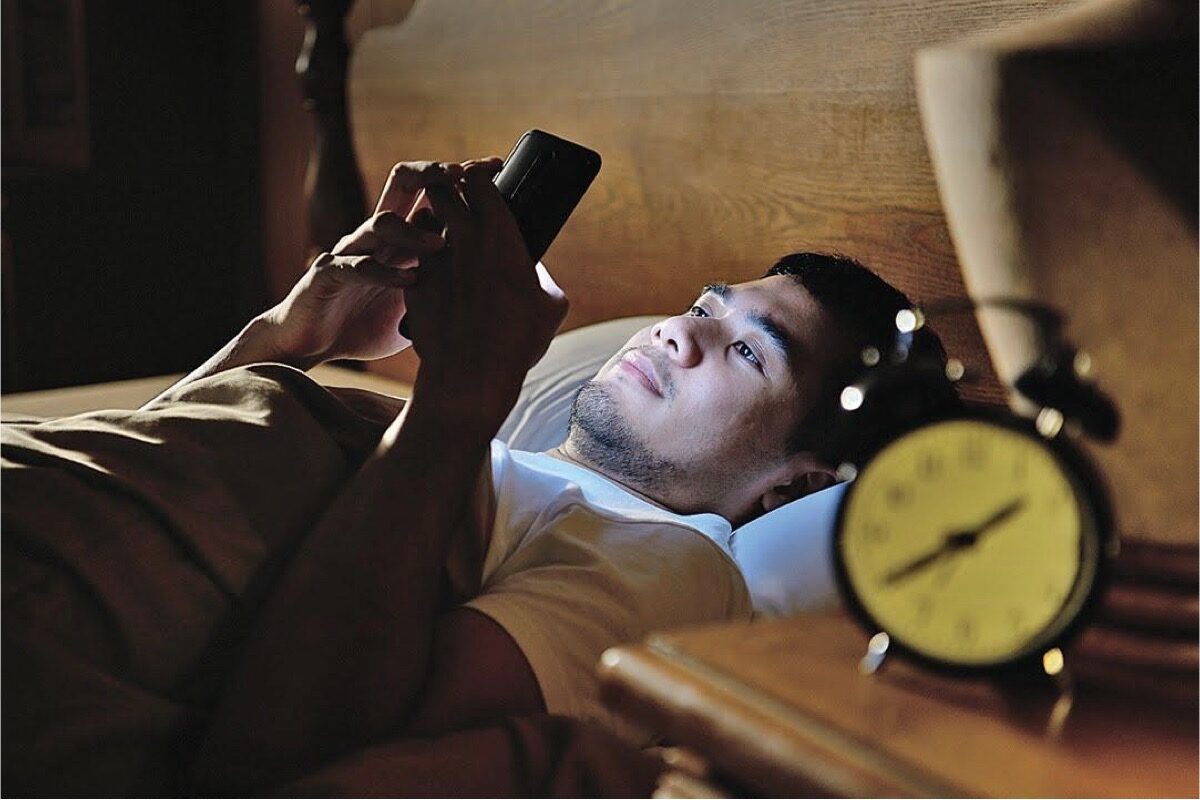By David Chu
Insomnia is a common sleep disorder affecting memory and concentration. It can make you sleepy during the day, and also increases the risk of many diseases. What are the causes of insomnia and how can sleep be improved?
Sleep is critical for overall health—good sleep improves brain performance, mood, and physical well-being. In an April 2021 article, published on the website News in Health, Dr. Kenneth Wright, Jr., a sleep researcher at the University of Colorado stated that “Everything from blood vessels to the immune system uses sleep as a time for repair.†Lack of sleep regularity raises the risk of many diseases and disorders, including heart disease, stroke, obesity, and dementia.
People with insomnia may have trouble falling and staying asleep, or getting good-quality sleep. According to a review of studies published in The American Journal of Managed Care in 2020, approximately 30 percent to 40 percent of adults in the United States report symptoms of insomnia every year.
5 Possible Causes of Insomnia:
- Deficiencies in key nutrients: Sufficient nutrient intake is essential to sleep. A study published in Nutrients in October 2019 found that insufficient intake of key nutrients such as calcium, magnesium, and vitamins A, C, D, and E are associated with sleep deficiency problems. A 2017 Harvard University study also concluded that dietary quality and intake of specific nutrients could impact regulatory hormonal pathways, which affects sleep quantity and quality.
- Caffeine and alcohol: Caffeine is a stimulant that keeps people awake, and the mean half-life of caffeine in the plasma of healthy individuals is about 5 hours. Therefore, the body is slow to eliminate caffeine, and people should refrain from drinking coffee, tea, coke, and other common caffeinated beverages in the afternoon and evening. A study by Johns Hopkins Hospital stated that healthy people who drink alcohol fall asleep more quickly and sleep more deeply. However, when the alcohol wears off, it can wake people during very significant and restorative stages of sleep. Alcohol can also worsen sleep apnea symptoms and, if used regularly, increase the likelihood of sleepwalking, sleep talking, and memory problems.
- Digestive problems: Eating spicy foods can cause heartburn, impacting people’s sleep. When lying down acid reflux often worsens. With sleep apnea, the symptoms may worsen if the backed-up acid irritates the airway. High-protein foods like steak and chicken can also disrupt sleep because they take a long time to break down, which is a problem at bedtime since digestion slows down to 50 percent when sleeping. Also, avoid aged or processed cheeses, salami, and pepperoni, which contain tyramine that triggers the release of norepinephrine, which may stimulate the brain.
- Use of electronic devices before bed: A survey by the National Sleep Foundation in 2011 found that nine out of 10 Americans reported using a technological device one hour before bed. Blue light is part of the visible spectrum and is important for keeping the body alert during the day and inhibiting melatonin secretion, which may make it difficult to fall asleep and affect sleep quality.
- Evening exercise before bed: A study published in the journal Sports Medicine in 2019 showed that people who engaged in vigorous exercise one hour before bedtime took longer to fall asleep and had poorer sleep quality.
 (Shutterstock)
(Shutterstock)
When insomnia seriously affects the quality of life, it is recommended to start by supplementing key nutrients and adjusting one’s living habits. This will eliminate other factors that may cause difficulty in sleeping and gradually improve insomnia and lack of sleep. You can try the following five methods:
1. Replenish Nutrients Essential for Sleep
Calcium supports bone health and relieves stress, relaxes emotions, and maintains normal nerve conduction functions. Cheng Hsin-i, a nutritionist from the Formosa Cancer Foundation in Taiwan, wrote an article published on the Health Promotion Administration Ministry of Health and Welfare’s website, stating that a chronic lack of calcium can affect neurotransmission and make it impossible to relax emotionally and make people feel agitated and irritable.
She suggested that people who have trouble sleeping can take more calcium-rich foods such as fresh milk, cheese, dried fish, and seaweed to get enough calcium. This will allow people to fully relax and stabilize their emotions during sleep, which in turn improves physical and mental fatigue.
Magnesium stabilizes the brain and nervous system, helps muscles relax, maintains a calm mood, and relaxes the body and mind. When the body does not get enough magnesium, it will interfere with the balance and integrity of the nerves, making people nervous or irritable. In case of severe magnesium deficiency, it will also affect people’s appetite and even cause lethargy. Familiar food sources for magnesium supplementation include bananas, sesame seeds, nuts, dark, leafy vegetables, and raisins.
Cheng said vitamin B complex, including B1, B2, B6, B12, folic acid, and nicotinic acid, is crucial for the body’s energy metabolism and neurotransmission functions. Therefore, taking more vitamin B complex in your daily diet can tackle problems of chronic fatigue. Foods rich in vitamin B complex include animal protein, dark green vegetables, and whole grains.
 (Shutterstock)
(Shutterstock)
2. Develop a Sleep Routine
Go to bed and wake up at the same time every day, even on the weekends. Adults are recommended to sleep at least seven hours or more each night. School-age children should get at least nine hours a night, and teens between eight and 10.
Some may think that they can “catch up†on the weekend if they don’t get enough sleep during the week. However, National Institutes of Health (NIH) researchers pointed out that “the weekend isn’t sufficient for catching up if one has a week’s worth of getting too little sleep. That’s not healthy behavior.â€
Although it is sometimes said that adults need less sleep as they age, this isn’t true—older adults still require the same amount of sleep—but without proper care, sleep quality can deteriorate.
3. Exercise Daily
According to Harvard Health Publishing, a division of Harvard Medical School, exercise is very effective at burning off stress hormones, such as epinephrine and cortisol. In addition, it stimulates the production of endorphins in the brain, which are the body’s natural painkillers and mood enhancers. Regular aerobic exercise significantly changes the body’s metabolism, heart health, and cognitive abilities, while also having a relaxing, calming, depression-fighting, and stress-relieving effect.
The NIH also recommends that people who need help sleeping do some exercise every day—but not too close to bedtime. In addition, they suggest that people try to get natural sunlight for at least 30 minutes every day.
4. Create a Healthy Sleeping Environment
The Sleep Foundation suggests people can sleep better by improving their bedroom environment and sleep-related habits, such as having a comfortable mattress and bedding and keeping the bedroom dark and quiet. Silencing the cell phone, reading a book, listening to music, or doing other relaxing activities such as taking a warm bath or foot bath before bed, can help to induce sleep. Lie down on the bed only when you want to sleep.
5. Use Sedatives/Sleeping Pills Only as Physician Directed
Guan Meixu, director of pharmacy at the Taipei City Hospital, Zhongxiao Branch, wrote an article published on the Taiwan Food and Drug Administration site to remind people who have suffered from sleep disorders for more than a month and have their daily life significantly affected to seek professional assistance from a doctor immediately. She said that sedative sleeping pills are the last line of defense in treating insomnia and that long-term continuous use can lead to addiction, tolerance, and dependence and should not be used without doctor supervision.
Guan said sleeping pills are one treatment method to reduce sleep disorders. However, to effectively manage sleep disorders, the patient must still regulate their lifestyle habits, adjust their biological clock, and reduce caffeine consumption. Sleep disorders can only be effectively solved with a multi-pronged approach.
